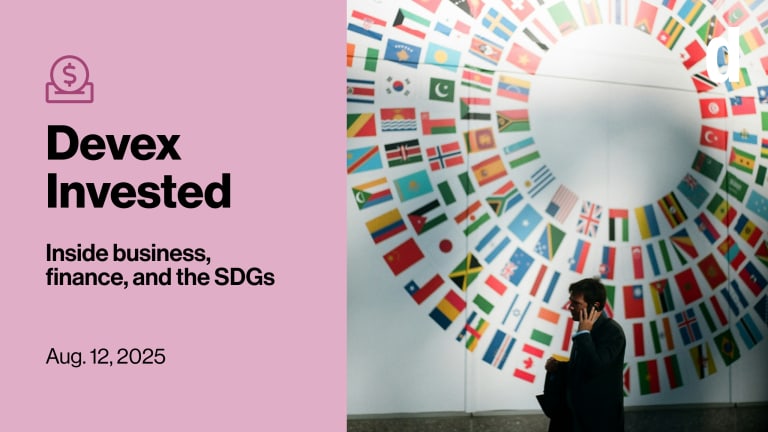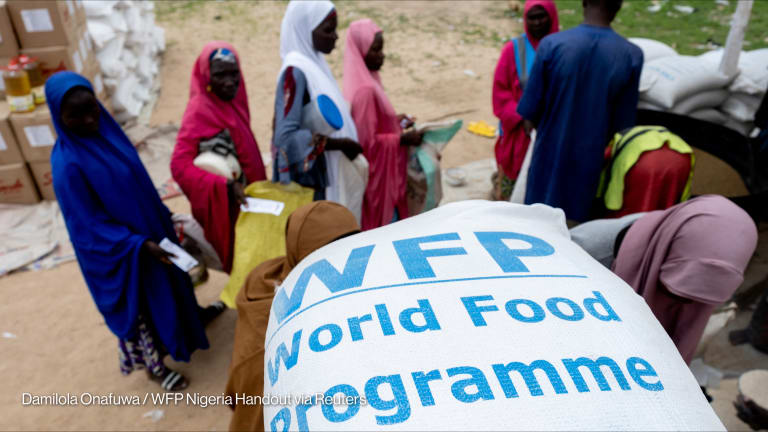The IMF board of governors May 6 approved the sale of 403.3 tons of IMF gold reserves as part of a wide-ranging financial overhaul that helps boost its sagging coffers. The plan would create an ?endowment? that helps provide a steadier source of income to the international organization that has drastically scaled back on lending. AFP reports governors from 176 of the Fund’s 185 member countries cast votes, with all in favor of the plan. Approval required a majority of the votes cast. ?With this decisive endorsement, the Fund’s members have once again demonstrated their support for reforming key components of the institution’s framework, including its financial structure,? IMF Managing Director Dominique Strauss-Kahn said.
The Asian Development Bank (ADB) pledged USD 2.5 billion in emergency aid and loans in Asian nations hit hardest by soaring food costs as finance chiefs agreed on May 6 to boost farm output as a long term solution to the crisis. Finance chiefs called on the ADB to take an active role in stabilizing surging food prices in a region that is home to two thirds of the world’s poor and risks civil unrest after wheat and rice prices doubled in the last year. ADB President Haruhiko Kuroda said ? the best long term solution to painful price spikes was through boosting agricultural output, adding that the bank would double lending to agricultural and natural resource and infrastructure projects to USD 2 billion in 2009.
Donors have pledged USD 11.3 billion to the ADB by 2012 to help it tackle poverty and the food crisis. ADB President Haruhiko Kuroda said ?the generous contribution of donor nations? would ?bring better opportunities and a brighter future to people living in the region?s poorest nations.? Roads, clean water and sanitation, electricity networks and other essential infrastructure aimed at improving the lives of the poor and boost growth as well as education projects would continue to be a focus of ADB’s support, Kuroda said. The figure marks a 60 percent increase from the USD 7 billion donated to the ADB’s Asian Development Fund in 2005-2008. The fund provides grants and low interest rate loans to the Asia Pacific region’s poorest countries.
Finance ministers of 13 Asian nations agreed in Madrid on April 30 to set up a foreign exchange pool of at least USD 80 billion to be used in the event of another regional financial crisis. China, Japan and South Korea will provide 80 percent of the funds, with the rest coming from the 10 members of ASEAN, they said in a joint statement issued after talks on the sidelines of an Asian Development Bank meeting in Madrid. The ASEAN Plus Three finance ministers agreed to upgrade the network of bilateral currency swap agreements under the so-called Chiang Mai Initiative of 2000, which was designed to prevent a repeat of the 1997 Asian currency crisis, and increase the amount of available emergency funds from USD 58 billion now.
Norway and the EU pledged USD 935 million in aid to Sudan over the next four years at the start of a donors’ conference in Oslo on May 6. Conference host Norway pledged USD 500 million between 2008 and 2011 to help Africa’s largest nation recover from 21 years of internal warfare. The EU immediately followed up with a promise of USD 435 million in the same period. Sudanese Vice President Ali Osman Taha called on other delegates attending the conference to increase support for his country. Most countries are expected to announce their pledges at a special session near the end on the meeting, which ended May 7.
The head of South Africa’s Scorpions crime-fighting unit, Leonard McCarthy, was appointed to lead the World Bank’s anticorruption department. Robert Zoellick, President of the World Bank, said in a statement that President Thabo Mbeki of South Africa had agreed to release McCarthy from service to take up the position of Vice President of the Bank’s Department of Institutional Integrity on June 30. McCarthy is among the most prominent government investigators in developing nations. He has held numerous positions in government, including investigating director in the Office for Serious Economic Offenses, deputy attorney general of the Cape Province and senior public prosecutor. He was appointed as a director of public prosecutions by former President Nelson Mandela.








